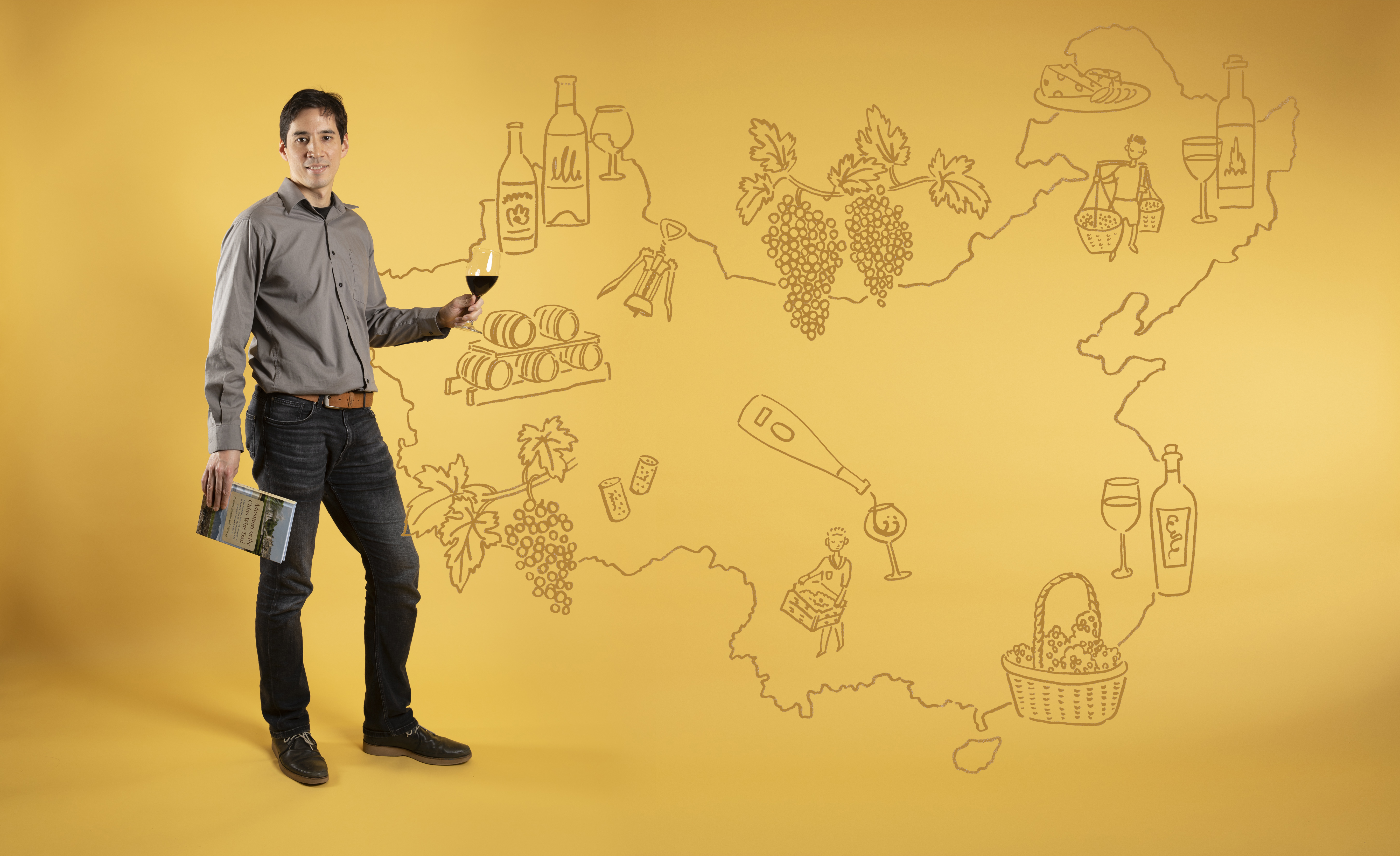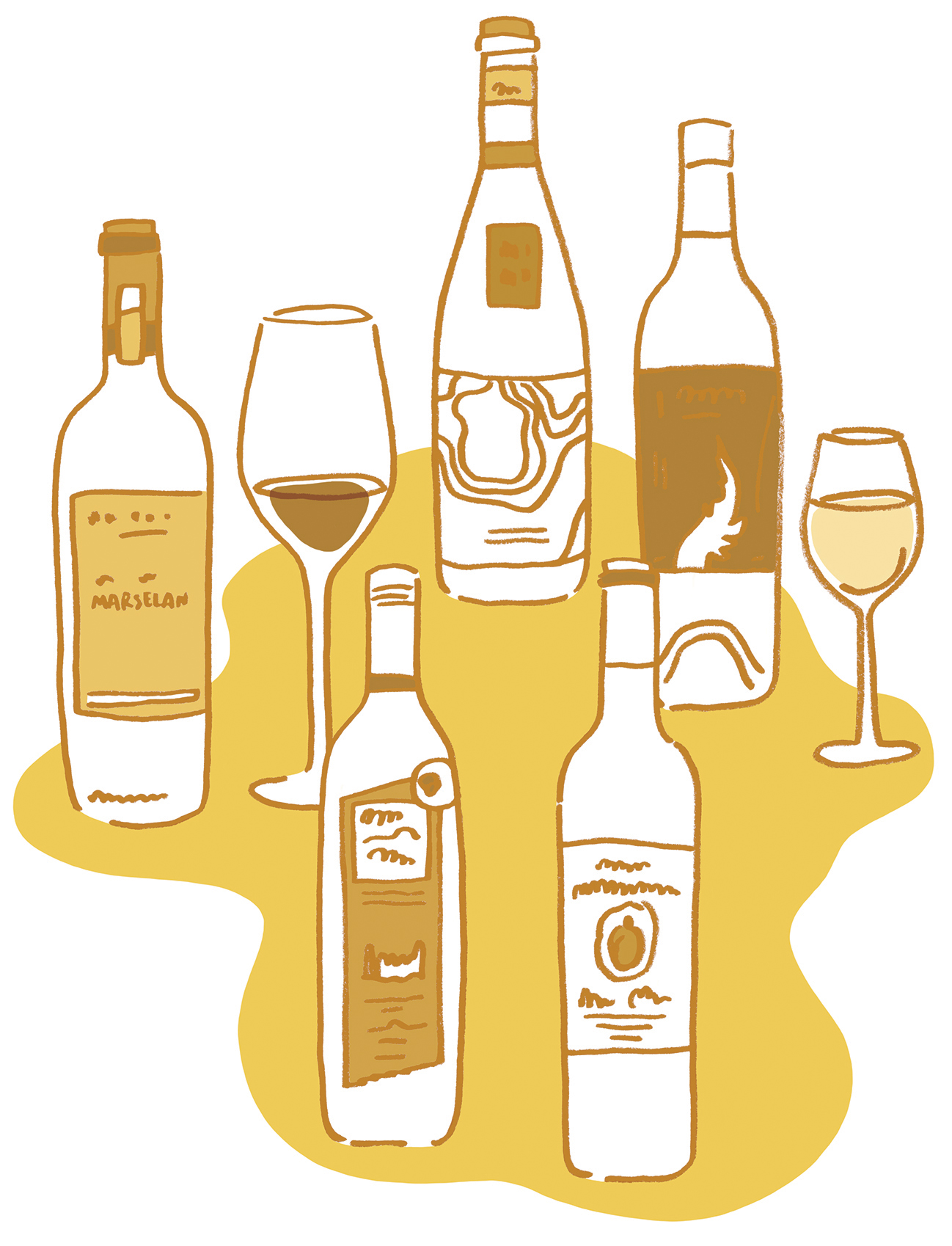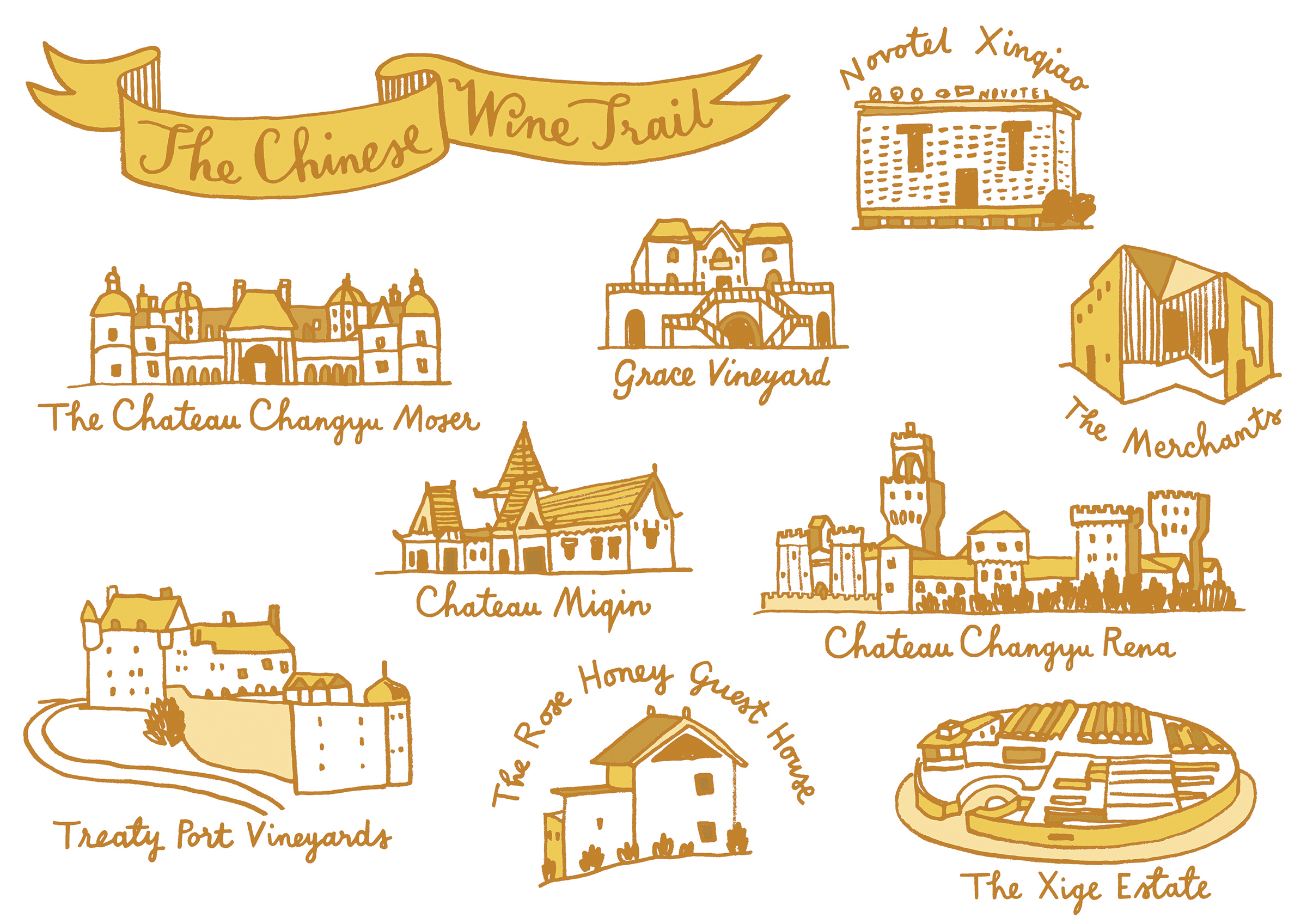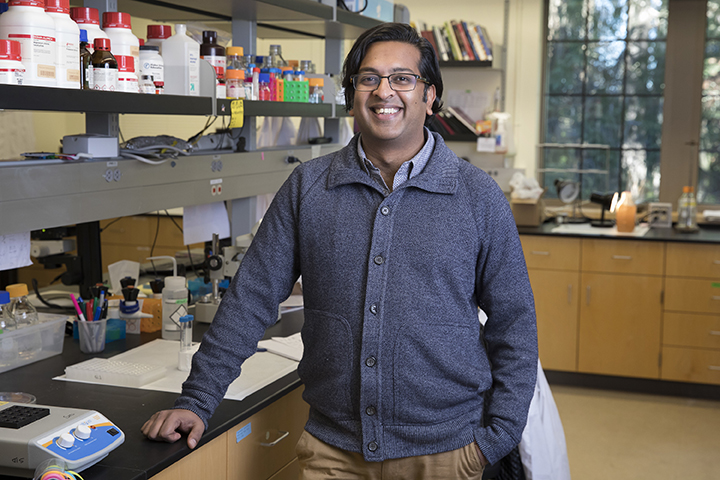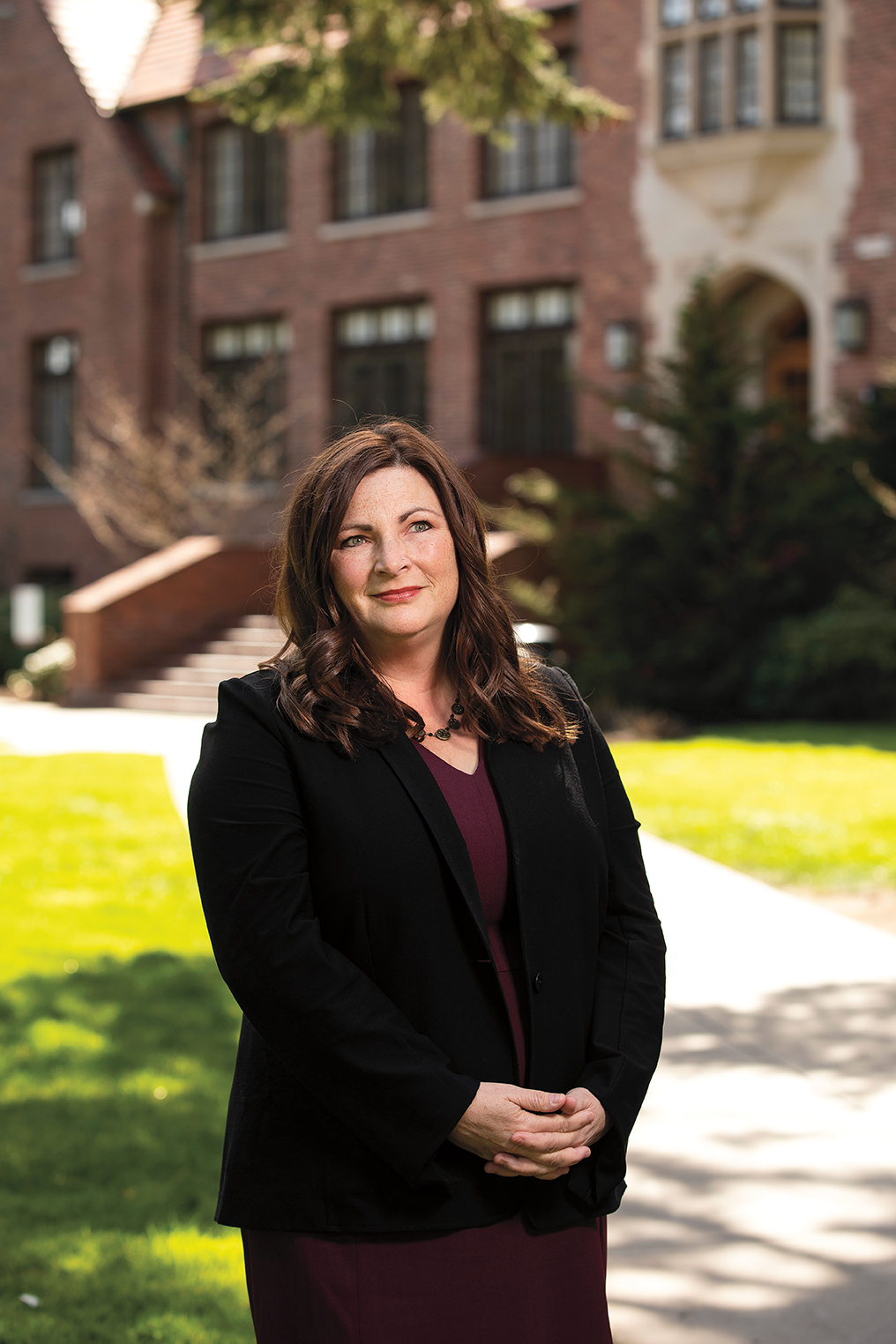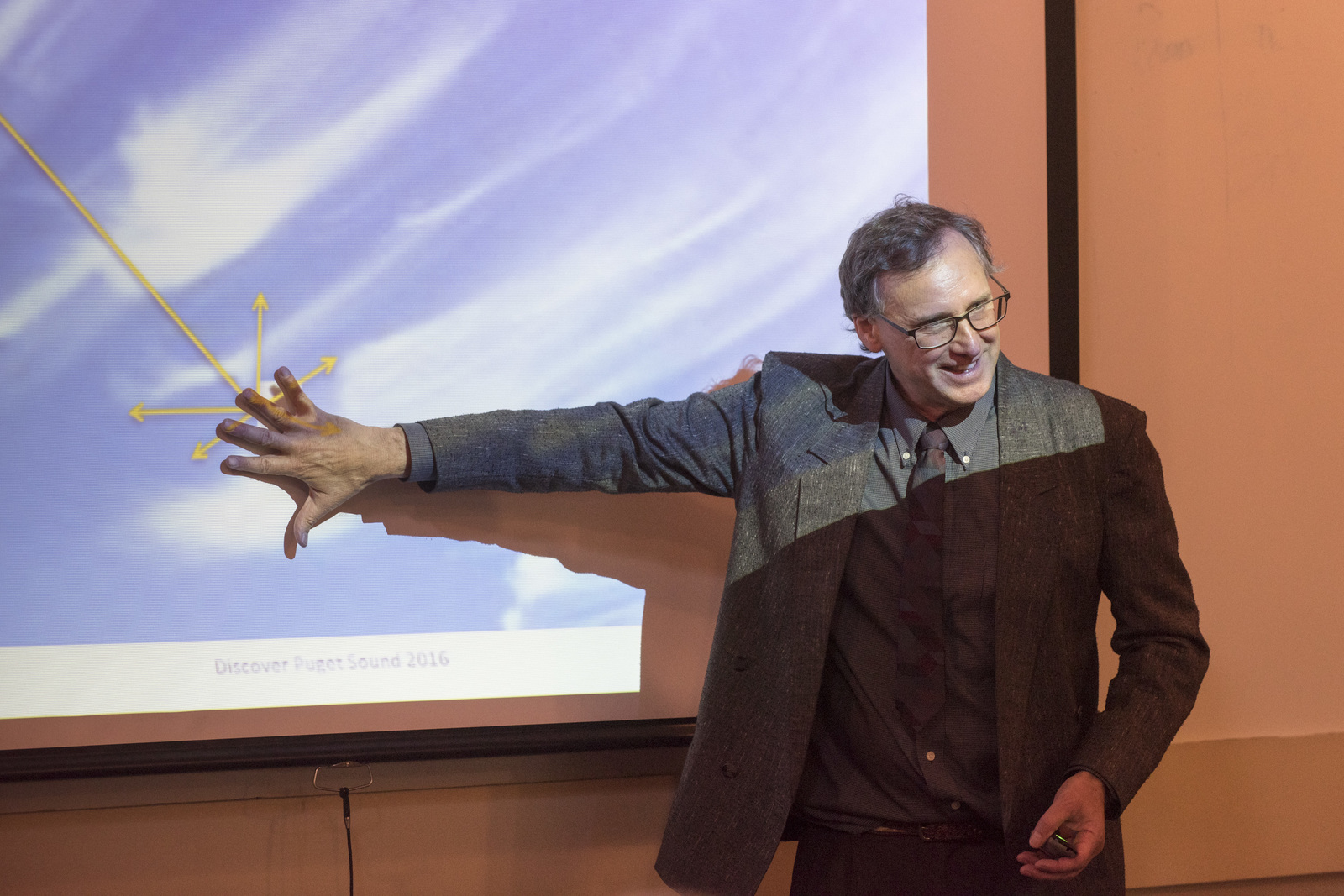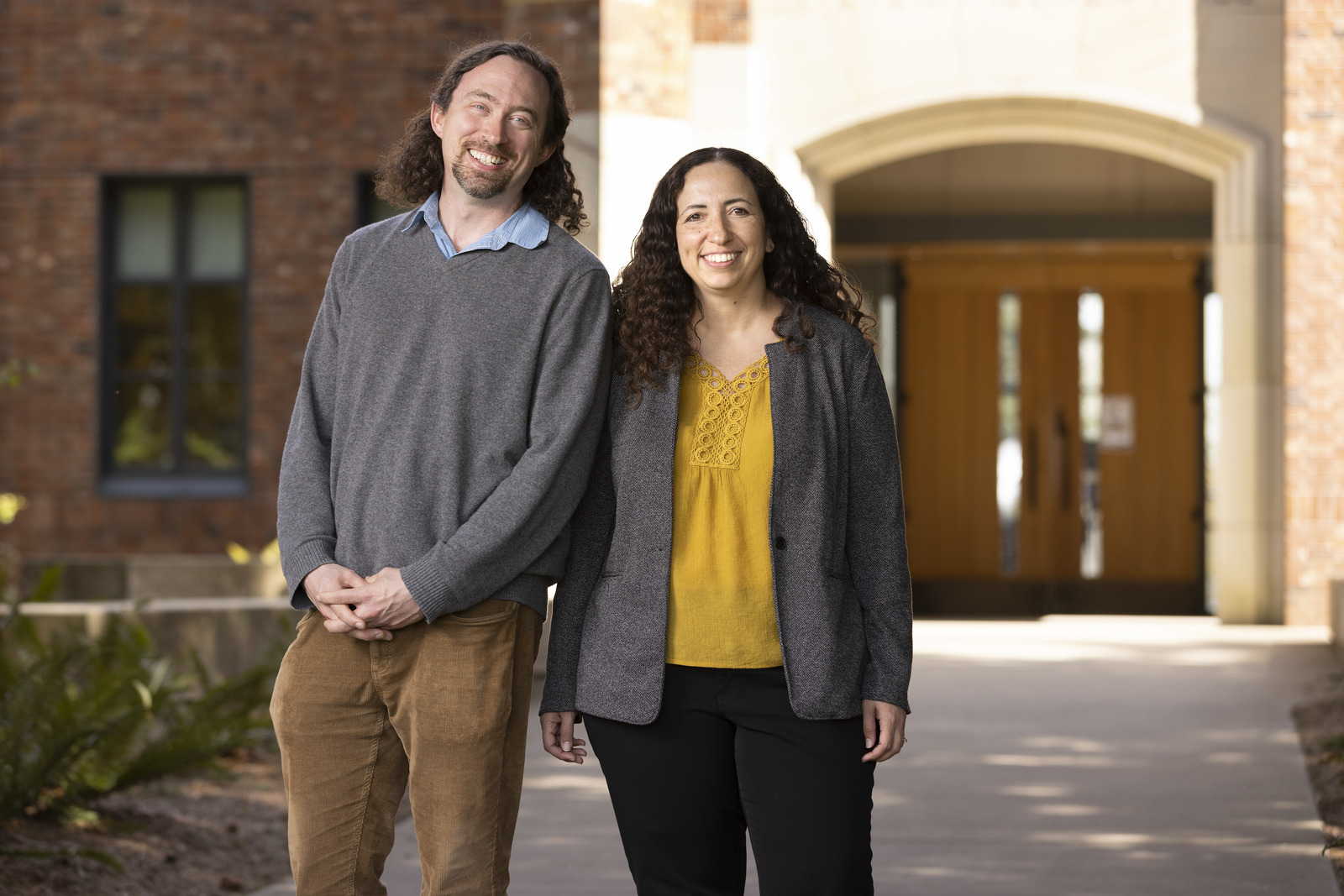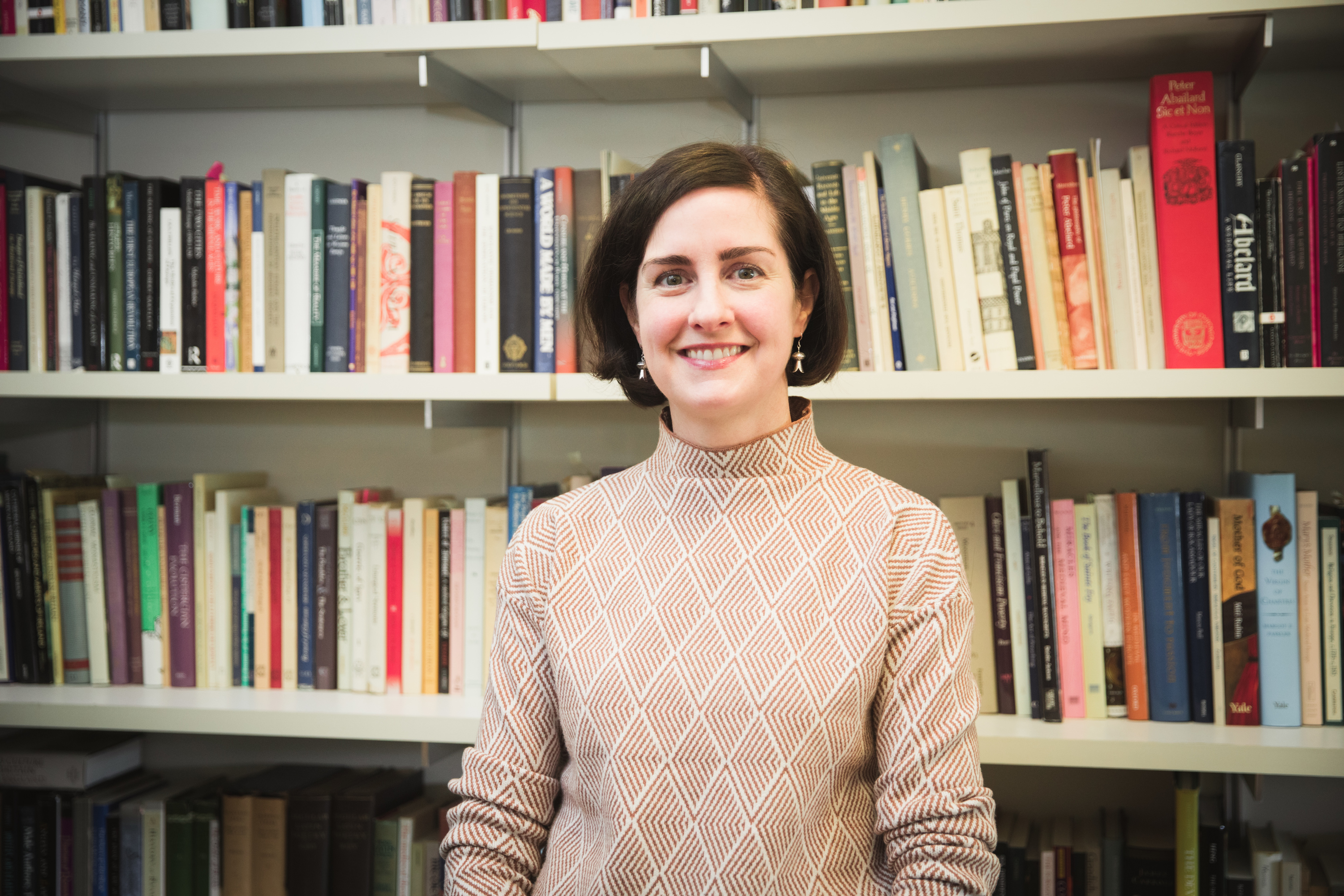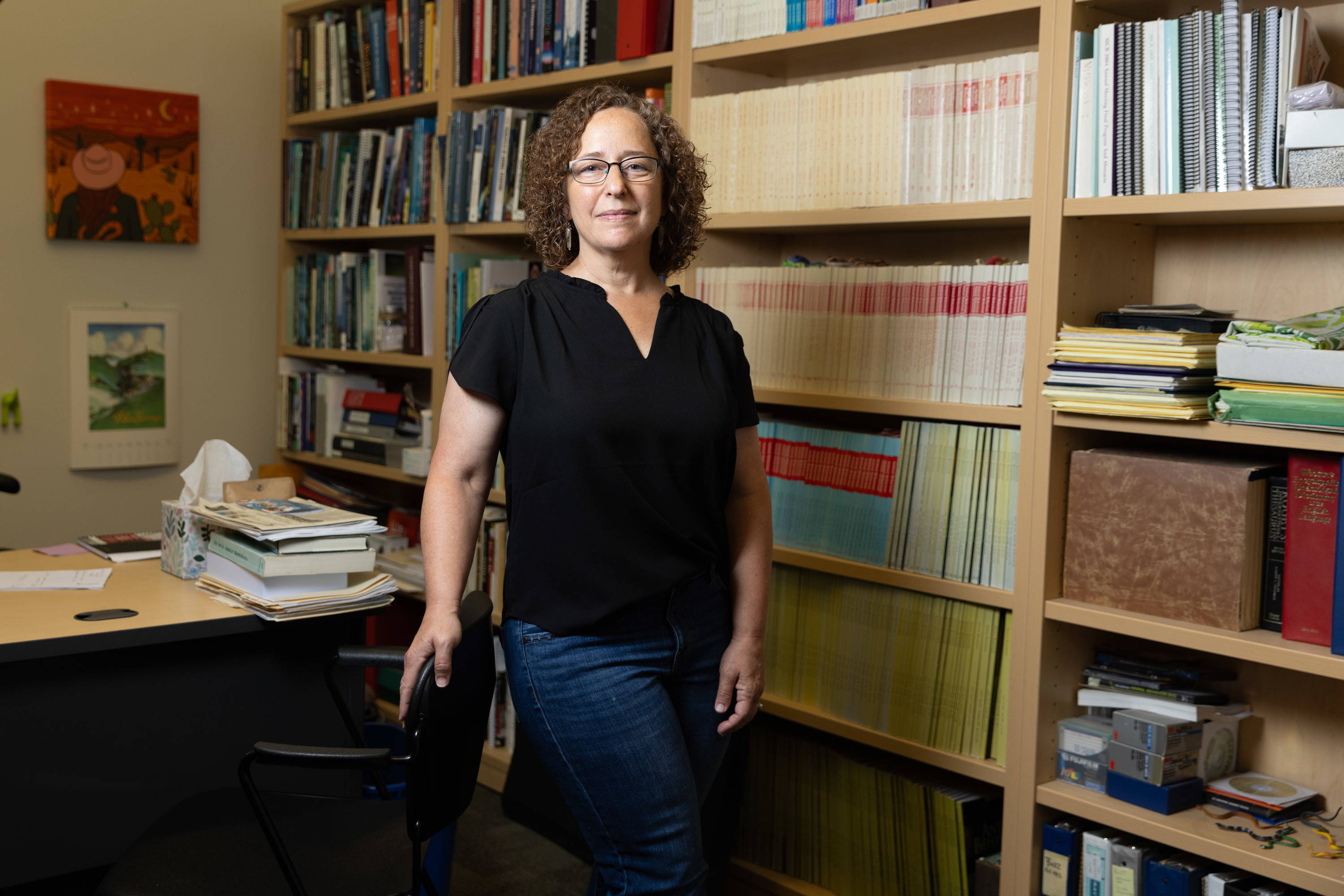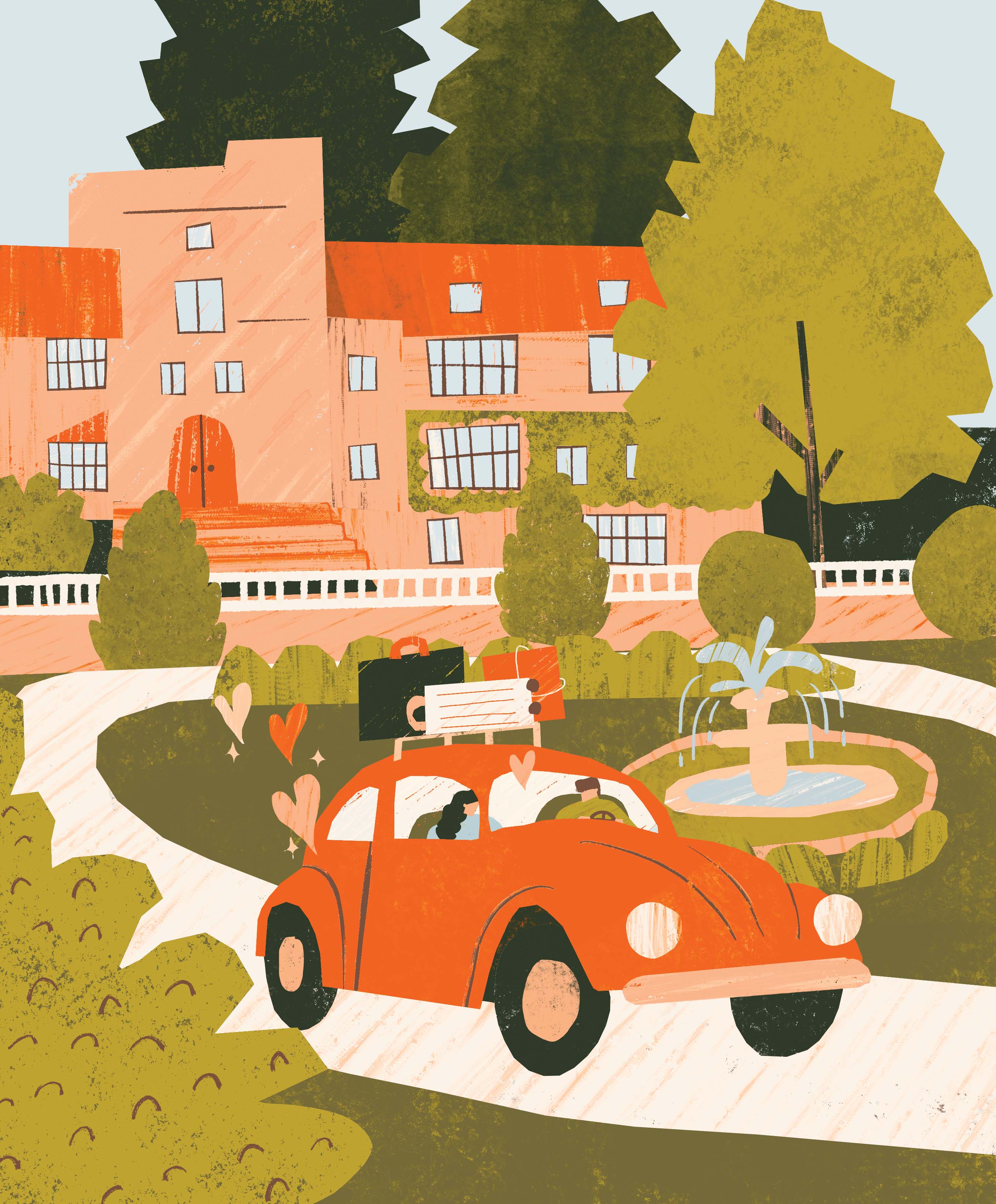How Pierre Ly paired global political economics with Chinese wine
Just outside the Chinese city of Xi’an, at the eastern end of the Silk Road, Pierre Ly, associate professor of international political economy, found himself in a winery unlike any he had visited before. In an area most famous for its terra-cotta warriors, Ly and his wife skipped the ancient statuary to taste wine before heading home—the winery was just a 15-minute drive from the airport. Entering a theater and donning special glasses, the couple expected a short film on the wine-making process. But then the seats shook, wind blew through their hair, and water sprayed their faces—it was a full 4D movie experience.
Next, they were invited to board a Disney-like ride, and as the cart jerked along, a brick wall opened: “A Dracula-looking version of the founder of the winery popped up,” Ly recalls. “It was very strange.” Later they watched a live theater piece—ostensibly to describe food and wine pairings—that involved actors being whisked away in a tornado.
Back in a rainy Seattle, over glasses of French and Italian wines at the cozy-modern pub Damn the Weather, Ly relates the story in his lilting French-accented English. (Ly grew up in, and was educated in, France.) It’s strange to picture a professor who teaches classes on international trade and finance unexpectedly belted into a carnivalesque ride—at a winery—6,000 miles from here. But Ly just shrugs. “When you do work in China, you have to be ready for really unexpected things,” he says, then takes a sip of a bubbly Italian white wine.
He should know. Ly and his wife, Cynthia Howson (a senior lecturer at the University of Washington), have made eight trips to China over the last six years to research the country’s wine and its wine economy. The result is a book, Adventures on the China Wine Trail, published by Rowman and Littlefield in February. The book has already earned Gourmand International’s Best in the World award for 2020 in the Wine and Beer Tourism category.
Ly, director of the International Political Economy Program at Puget Sound, joined the faculty in 2008. The head of the program at the time, Mike Veseth ’72, was teaching a popular class called The Idea of Wine, which looked at the local and global political, economic, and social forces that shape wine production and consumption. Veseth had earned a reputation in the wine industry as the “wine economist.”
As Veseth moved toward retirement, Ly took over a couple of his classes in international political economy, but there was never an obvious plan for him to do the same with the wine class—or at least it didn’t seem that way: “My wife is pretty sure that he subtly groomed me into it,” says Ly. “First he invited me to the wine tasting. Later, when he was traveling, he asked if I would guest lecture, and I overprepared for it by reading all the books on the syllabus. I really liked the subject and it was fun, but it wasn’t on my radar to take [the class] over.”
Ly has been teaching the wine class ever since Veseth retired in 2013, and it has taken his life down a previously unexpected path. Growing up in France exposed Ly to plenty of wine, and he even had a maternal grandfather who had been a wine merchant in Bordeaux. But Ly had only a casual interest in wine before he came to Puget Sound.
Ly’s background in international political economy influenced his wine explorations, as he looked for places where wine could tell new stories of commerce and trade. He was interested in China’s economic growth and realized he could understand it, and teach about it, through its wine industry. In 2015, he took part in a faculty exchange program between Puget Sound and Fujian Normal University—an exchange sponsored by the Trimble Foundation, which also provided funding to Ly for later research. “At first, it was going to be a fairly short-term thing—my wife and I would go to China once or twice and write a couple of papers and then move on. But as we worked, we discovered more and more layers,” says Ly.
In China they looked at wine from every angle, seeking out not only winery owners and employees but also scientists and writers, as well as professors and students at university wine programs. “The more we knew people, the more we got introduced around,” he says. They interviewed wine marketers, wine shop owners, importers, restaurateurs—even farmers who were selling grapes along the roadside.
Howson and Ly originally began their Chinese wine research as a purely academic project. But a few years into it, they decided to reach a broader audience by changing their writing style and by sharing travels and resources on Instagram and Twitter. A year ago, they started blogging as the “Traveling Wine Profs.”
Likewise, their book isn’t an academic read; it’s closer to a travel book. “We asked ourselves, ‘How can we take the serious scholarship we present at academic conferences but get more people to care about it?’” Adventures on the China Wine Trail crisscrosses the country from Beijing to Shandong to Ningxia, as the duo visit both older and just-opened wineries. They find tasting rooms in traditional Chinese buildings, manors in the English mold, and European-style castles. Some wineries are so isolated or so new that they aren’t easy to find—Ly and Howson get stranded in a middle-of-nowhere field for hours when their driver gets lost and then has to fix a flat tire. They venture up to the cliffside city of Shangri-La to learn about a wine industry tucked in the surrounding mountains, with players ranging from small family growers to a venture headed by a multinational corpo-ration.
While the book covers wine and wineries, it’s also informed by Howson’s and Ly’s broader academic interests: It touches on the growth of the Chinese consumer society, how property law in a Communist country affects the ownership of grape-growing land, and how wine has brought education and job opportunities to Chinese farmers.
Chinese wine is booming. According to the book, China is the fifth-largest wine consuming country in the world. Most of its wine is sold domestically, so wine tourism is mostly for locals. That means that, superficially, visiting a Chinese winery might be different than going to one in the U.S.—that family-friendly, Disney-like experience at the winery outside Xi’an is a good example. But the equipment, grape growing, production, and bottling are the same in China as they are elsewhere. You’d recognize the names of the varietals, many made from imported cuttings, like cabernet sauvignon, merlot, and chardonnay. “Chinese wines can be mistaken for French, Australian, and Californian wines,” says Ly. There are a few hybridized grape varieties that are uniquely Chinese, like Beichun, which came out of a research project; “it’s very resilient and has cold-hardy properties,” Ly says. In southern Yunnan, winegrowers have developed varieties that can withstand the monsoon season. But overall, Ly says, “good Chinese wine is like good wine anywhere.”
Ly’s wine trail doesn’t stop in China—he wants to explore the niche growers of Vietnam next. His curiosity comes at least partially from a family connection: Ly’s father is Vietnamese and immigrated from Vietnam to France. But his grandfather was Chinese, and as Ly did more research, “it reconnected me with this part of my family heritage in a way I didn’t expect. It became more personal than I thought.”
His world travels have brought him other family, too: Ly met Howson, his wife, on an elevator in Bangladesh. She was working for the French school in that country, and he was doing research on NGOs for his Ph.D. They’ve been married for 12 years. Howson has a wealth of experience in fieldwork (her research is on cross-border trade), and Ly says she’s great at getting people to talk, which came in handy during the book research. “It’s not easy to do this work. There are lots of frustrating things— closed doors and stuff that goes nowhere.” But despite frustrations, the research and travel have cemented them as a team. “This work allows us to do what we love and spend time together as part of our work,” he says. “It’s an extraordinary privilege.”
It’s not all academic research and travel—Ly also teaches several courses in international political economy, as well as the beloved Idea of Wine class, each semester. The wine course isn’t a semesterlong wine club: Wine tasting is limited to a few optional, after-class meetings, and the bulk of the class is about appreciating wine in a different way—as a microcosm of economic forces. As a Connections course, it’s meant to unite seemingly disparate parts of the liberal arts curriculum. It’s available only to juniors and seniors, reflecting both the legal drinking age and the complexity of the subject matter.
Ly’s class starts with the nuts and bolts of wine production. “Most students come with very little knowledge of wine or even how it’s made—which is true of most people anyway,” he says. “So we start in the vineyard with the grape.” Wine is an agricultural product, made by fermenting grape juice—but the simplicity ends there. Wine is a bottle on the shelf with a value, but it’s also a link to shared history, an intoxicant, and a beverage uniquely flavored by rainfall, sunlight, and geology. Some people taste, some quaff, some collect. And the “best” wine, unlike in many other products, is incredibly subjective. “The idea of wine is complicated. It means different things to different people—including people who disagree with each other. That attracted me to teaching it,” says Ly. The point of the class is to help students understand how culture, economics, and agriculture come together with the ineffable: the value a person puts on a fleeting flavor, an experience, a memory.
After covering the basics, Ly gets into geography—where wine grapes are grown and wine is made, and why. The class then delves into the wine business more broadly, as well as wine policy and trade in the European Union, U.S., and elsewhere: regulations, tariffs, trade disputes, sustainability, even immigration policy (“which impacts farming a lot, because of the people who typically work in vineyards,” Ly says).
Finally, Ly talks about how wine reflects the society it comes from—“with all the beautiful and terrible things that can include.” Like other industries—fashion, tech, even other agricultural sectors—wine can provide opportunities for economic development, job creation, and investment. But, also like those other industries, wine production has its drawbacks: using up vital resources or destroying natural habitat, for instance. “More and more, students are connecting wine with climate change,” Ly says. “And last year, I had our first couple of papers where students were talking about diversity and inclusion in the industry.”
Tasting wine together a couple of times gives space for students to talk informally about the higher-level topics covered in the syllabus. Ly also asks them to keep wine journals, asking them to choose and write about wines that connect with issues talked about in class. “I want them to look at a bottle of wine and think about it through the lens of the class,” he says. So, as the students sip, they’re thinking about who picked the grapes, how much they were paid, what impact climate change might have on the future of that wine, and who reaps the profits from that wine’s purchase—small grower or large corporation.
The whole point is to get students thinking about how an agricultural product affects lives, economies, and the environment, and how it connects an increasingly globalized world. “When you spend a few months of your life thinking critically about wine, it sticks in the back of your mind somewhere,” says Ly. “Whether you care for the product or not, wine will connect with things you do care about.”
